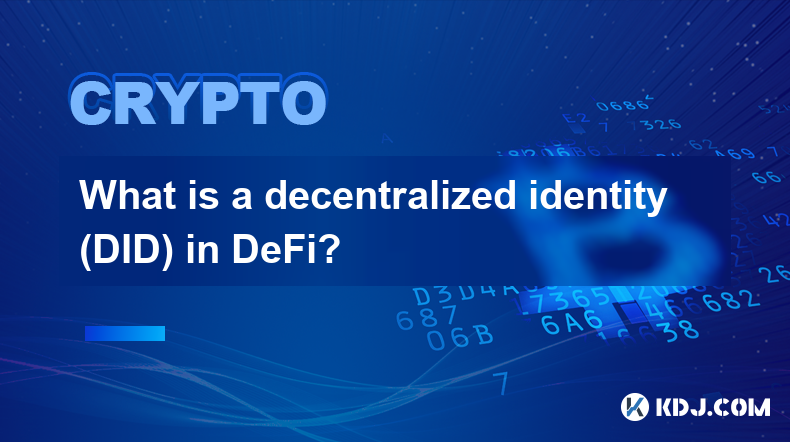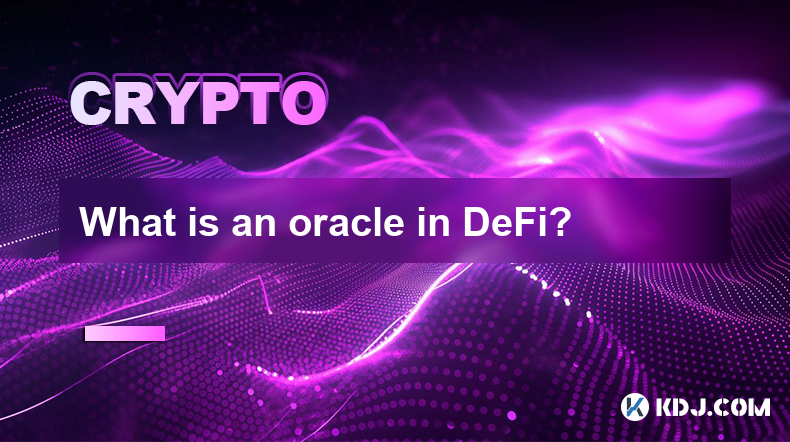-
 Bitcoin
Bitcoin $83,384.0103
-0.52% -
 Ethereum
Ethereum $1,808.8880
-0.27% -
 Tether USDt
Tether USDt $0.9996
-0.01% -
 XRP
XRP $2.1285
0.17% -
 BNB
BNB $590.6650
-1.02% -
 Solana
Solana $119.8001
-1.16% -
 USDC
USDC $1.0000
-0.01% -
 Dogecoin
Dogecoin $0.1672
-1.52% -
 Cardano
Cardano $0.6450
-2.14% -
 TRON
TRON $0.2358
-0.73% -
 UNUS SED LEO
UNUS SED LEO $9.1542
-0.44% -
 Chainlink
Chainlink $12.7548
-1.04% -
 Toncoin
Toncoin $3.2310
-2.48% -
 Stellar
Stellar $0.2517
-2.57% -
 Avalanche
Avalanche $17.3882
-4.28% -
 Shiba Inu
Shiba Inu $0.0...01223
-0.63% -
 Sui
Sui $2.1802
-2.73% -
 Hedera
Hedera $0.1601
-2.08% -
 Litecoin
Litecoin $82.2437
-2.91% -
 Polkadot
Polkadot $3.9303
-2.19% -
 MANTRA
MANTRA $6.2192
-1.01% -
 Bitcoin Cash
Bitcoin Cash $295.8200
-1.72% -
 Dai
Dai $1.0000
0.00% -
 Bitget Token
Bitget Token $4.4500
-1.78% -
 Ethena USDe
Ethena USDe $0.9991
0.00% -
 Pi
Pi $0.6522
50.32% -
 Monero
Monero $214.4466
-1.61% -
 Hyperliquid
Hyperliquid $11.5830
-3.12% -
 Uniswap
Uniswap $5.8275
-1.00% -
 OKB
OKB $54.4412
7.17%
Is UNI coin worth investing in? A comprehensive analysis of the future value of UNI coins
Given UNI's strong fundamentals, such as Uniswap's wide adoption and robust tokenomics, analysts predict long-term growth for UNI, albeit with potential short-term volatility due to market competition and broader crypto market sentiment.
Sep 30, 2024 at 12:36 pm

Is UNI Coin Worth Investing In? A Comprehensive Analysis of the Future Value of UNI Coins
1. Understanding Uniswap (UNI)
UNI is the native utility token of Uniswap, a decentralized exchange (DEX) that enables users to trade Ethereum-based tokens. UNI token holders govern the Uniswap protocol and can vote on proposals related to the platform's development and operations.
2. Factors Influencing UNI's Value
Several factors can influence the future value of UNI coins:
- Adoption of Uniswap: As Uniswap gains wider adoption and becomes the preferred DEX for trading Ethereum tokens, the demand for UNI would likely increase.
- Governance Rights: UNI holders have voting rights in Uniswap's governance process, giving them a say in the protocol's direction. This can attract investors seeking a voice in the future of Uniswap.
- Tokenomics: UNI has a maximum supply of 1 billion tokens, ensuring that the supply is not unlimited. This can contribute to price stability and increase demand for the token.
- Competition: The DEX market is highly competitive, and Uniswap faces competition from other DEXs such as SushiSwap and Curve Finance. Market share dynamics can affect the value of UNI.
- Crypto Market Conditions: The overall crypto market conditions can significantly impact all cryptocurrencies, including UNI. Market trends and volatility can affect the token's price.
3. Historical Performance
Since its launch in September 2020, UNI has experienced significant price fluctuations.
- 2020: UNI initially traded at around $5, reaching a high of over $40 by the end of the year.
- 2021: UNI reached an all-time high of over $44 in May, propelled by the DeFi boom. However, it subsequently experienced a pullback and ended the year around $15.
- 2022: UNI has started the year on a bullish note, trading above $20 in January. However, market conditions and broader crypto sentiment can influence its future performance.
4. Analyst Predictions
Analysts have varying views on the future value of UNI coins:
- Long-Term Optimists: Some believe that Uniswap's strong fundamentals, growing adoption, and robust tokenomics position UNI for long-term growth. They predict steady price appreciation over the next few years.
- Short-Term Cautious: Others caution that the highly competitive DEX market and the overall crypto market volatility could impact UNI's price in the short term. They recommend a more conservative approach to investing until market conditions stabilize.
5. Risk Factors
Investing in UNI carries certain risks:
- Market Risk: The crypto market is highly volatile, and UNI's price can fluctuate significantly.
- Competition Risk: Uniswap faces competition from other DEXs, which could impact its market share and token value.
- Regulatory Risk: Cryptocurrency regulation is still evolving, and changes in regulatory frameworks could affect UNI's value.
6. Considerations for Investors
Before investing in UNI, consider the following factors:
- Investment Style: UNI may be suitable for investors with a high-risk tolerance and long-term investment horizon.
- Risk Tolerance: Be aware of the potential risks and invest only what you can afford to lose.
- Research: Conduct thorough research to understand Uniswap's protocol, market dynamics, and potential risks involved.
- Diversification: Avoid investing all your funds into UNI. Consider diversifying your portfolio with other cryptocurrencies and traditional assets to spread your risk.
Disclaimer:info@kdj.com
The information provided is not trading advice. kdj.com does not assume any responsibility for any investments made based on the information provided in this article. Cryptocurrencies are highly volatile and it is highly recommended that you invest with caution after thorough research!
If you believe that the content used on this website infringes your copyright, please contact us immediately (info@kdj.com) and we will delete it promptly.
- Coinbase CEO Brian Armstrong Calls for Stablecoin Legislation to Enable On-Chain Interest
- 2025-04-06 12:10:12
- Trump's New Secondary Tariff Strategy Lacks Finesse, Involves Millions
- 2025-04-06 12:10:12
- Tether Expands Bitcoin Holdings with New Purchase of 8,888 BTC
- 2025-04-06 12:05:12
- Tether Holdings Ltd. (USDT) Buys the Dip, Acquiring 8,888 BTC
- 2025-04-06 12:05:12
- Tether Expands Bitcoin Holdings With $735M Purchase of 8,888 BTC
- 2025-04-06 12:00:12
- Solaxy (SOLX) Leads the Charge as Inflows Return to Crypto Investment Products
- 2025-04-06 12:00:12
Related knowledge

What is a decentralized identity (DID) in DeFi?
Mar 23,2025 at 11:57am
Key Points:Decentralized Identifiers (DIDs) offer a self-sovereign approach to digital identity management, crucial for DeFi's privacy and security needs.DIDs operate independently of centralized authorities, empowering users with control over their data.Integrating DIDs into DeFi applications enhances user privacy, reduces reliance on intermediaries, a...

What does "composability" mean in DeFi?
Mar 14,2025 at 12:36pm
Key Points:Composability in DeFi refers to the ability of different decentralized finance (DeFi) protocols to interact and combine seamlessly, creating novel financial products and services.This interoperability is a core tenet of the DeFi ecosystem, fostering innovation and efficiency.Understanding composability requires exploring its mechanisms, benef...

What is token economics in DeFi?
Mar 14,2025 at 03:20am
Key Points:Token economics in DeFi defines how tokens are used to incentivize and govern decentralized finance (DeFi) protocols.It encompasses token utility, distribution mechanisms, and economic models designed to ensure sustainability and growth.Understanding token economics is crucial for evaluating the long-term viability and potential risks of DeFi...

How are transaction fees calculated in DeFi?
Mar 14,2025 at 04:25am
Key Points:DeFi transaction fees vary significantly depending on the specific protocol, network congestion, and the complexity of the transaction.Gas fees, a crucial component, are paid in the native token of the blockchain (e.g., ETH on Ethereum).Factors influencing gas fees include the type of transaction, data size, and network demand.Protocols often...

What is an oracle in DeFi?
Mar 22,2025 at 06:50am
Key Points:Oracles bridge the gap between on-chain and off-chain data in DeFi, providing real-world information to smart contracts.Different oracle types exist, each with its own strengths and weaknesses, including centralized, decentralized, and hybrid oracles.Security and reliability are crucial concerns for oracles, as vulnerabilities can lead to sig...

What is a cross-chain bridge? What is its role in DeFi?
Mar 14,2025 at 10:00am
Key Points:Cross-chain bridges facilitate the transfer of assets between different blockchains.They are crucial for DeFi's interoperability, allowing users to access diverse applications and liquidity pools across various networks.Several types of cross-chain bridges exist, each with its own security and scalability trade-offs.Understanding the risks as...

What is a decentralized identity (DID) in DeFi?
Mar 23,2025 at 11:57am
Key Points:Decentralized Identifiers (DIDs) offer a self-sovereign approach to digital identity management, crucial for DeFi's privacy and security needs.DIDs operate independently of centralized authorities, empowering users with control over their data.Integrating DIDs into DeFi applications enhances user privacy, reduces reliance on intermediaries, a...

What does "composability" mean in DeFi?
Mar 14,2025 at 12:36pm
Key Points:Composability in DeFi refers to the ability of different decentralized finance (DeFi) protocols to interact and combine seamlessly, creating novel financial products and services.This interoperability is a core tenet of the DeFi ecosystem, fostering innovation and efficiency.Understanding composability requires exploring its mechanisms, benef...

What is token economics in DeFi?
Mar 14,2025 at 03:20am
Key Points:Token economics in DeFi defines how tokens are used to incentivize and govern decentralized finance (DeFi) protocols.It encompasses token utility, distribution mechanisms, and economic models designed to ensure sustainability and growth.Understanding token economics is crucial for evaluating the long-term viability and potential risks of DeFi...

How are transaction fees calculated in DeFi?
Mar 14,2025 at 04:25am
Key Points:DeFi transaction fees vary significantly depending on the specific protocol, network congestion, and the complexity of the transaction.Gas fees, a crucial component, are paid in the native token of the blockchain (e.g., ETH on Ethereum).Factors influencing gas fees include the type of transaction, data size, and network demand.Protocols often...

What is an oracle in DeFi?
Mar 22,2025 at 06:50am
Key Points:Oracles bridge the gap between on-chain and off-chain data in DeFi, providing real-world information to smart contracts.Different oracle types exist, each with its own strengths and weaknesses, including centralized, decentralized, and hybrid oracles.Security and reliability are crucial concerns for oracles, as vulnerabilities can lead to sig...

What is a cross-chain bridge? What is its role in DeFi?
Mar 14,2025 at 10:00am
Key Points:Cross-chain bridges facilitate the transfer of assets between different blockchains.They are crucial for DeFi's interoperability, allowing users to access diverse applications and liquidity pools across various networks.Several types of cross-chain bridges exist, each with its own security and scalability trade-offs.Understanding the risks as...
See all articles





















































































